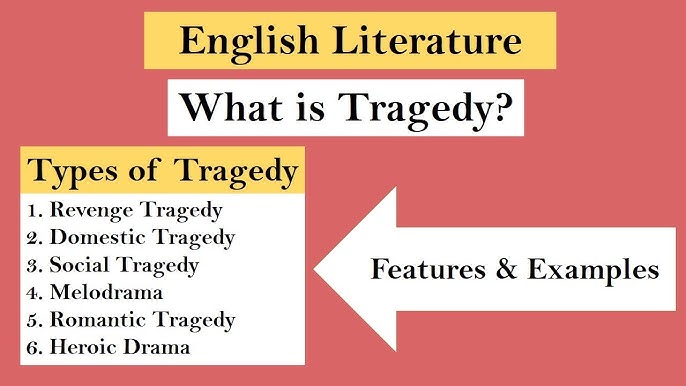
Tragedy, a powerful form of dramatic storytelling, has captivated audiences for thousands of years, exploring human suffering, moral dilemmas, and profound emotional experiences. Originating from ancient Greek theater, tragic drama presents narratives marked by heroism, downfall, and cathartic release. Understanding the key elements that constitute tragedy allows us to better appreciate its timeless appeal and universal relevance.
Historical Origins of Tragedy
The roots of tragic drama lie in ancient Greece, emerging around the 5th century BCE. Greek tragedies originated as theatrical performances at religious festivals honoring Dionysus, the god of wine, fertility, and drama. Influential playwrights such as Aeschylus, Sophocles, and Euripides defined the classical form, introducing narratives that remain influential to this day.
Aristotle, the ancient Greek philosopher, further analyzed tragedy in his work Poetics, identifying core elements—such as tragic heroes, hamartia, and catharsis—that continue shaping dramatic literature and performance.
Essential Elements of Tragic Drama
Understanding tragedy involves identifying several fundamental components:
1. The Tragic Hero
Central to tragedy is the tragic hero—usually a figure of high social status possessing admirable qualities yet deeply flawed. This flaw, known as “hamartia,” typically leads to the hero’s downfall. The tragic hero’s journey evokes sympathy and fear in audiences, deepening emotional impact.
Classic examples include Oedipus, Macbeth, and Hamlet—figures whose fates are profoundly shaped by their choices, circumstances, and character flaws.
2. Hamartia: The Tragic Flaw
Hamartia, or the tragic flaw, refers to a critical character weakness or error in judgment that sets the tragic events into motion. This flaw often manifests as pride, ambition, jealousy, or ignorance, leading the hero toward inevitable ruin.
For instance, in Shakespeare’s Macbeth, ambition fuels the protagonist’s actions, ultimately resulting in his tragic downfall.
3. Catharsis: Emotional Release
Catharsis—the emotional purification experienced by audiences—is a vital aspect of tragedy. Through witnessing suffering and resolution, viewers release pent-up emotions, gaining emotional clarity, compassion, or moral insight.
The intensity of tragic outcomes generates cathartic reactions, profoundly affecting audiences and allowing reflection upon human vulnerabilities and moral consequences.
4. Peripeteia: Reversal of Fortune
Peripeteia denotes a sudden reversal of circumstances, marking the tragic hero’s downfall from prosperity to suffering. Aristotle viewed this reversal as essential for tragic effectiveness, heightening drama and emotional intensity.
For example, Oedipus experiences peripeteia when he discovers his true parentage, shifting dramatically from honored king to tragic outcast.
5. Anagnorisis: Moment of Recognition
Anagnorisis signifies a critical moment when the tragic hero gains profound self-awareness or realizes the truth about their situation. This recognition intensifies tragedy, amplifying emotional impact and deepening narrative complexity knowledge.
King Lear’s realization of his daughters’ true nature epitomizes powerful anagnorisis, elevating tragedy through painful clarity.
Tragedy in Different Cultural Contexts
Although rooted in ancient Greece, tragedy appears universally across diverse cultural traditions. Elizabethan England, notably Shakespeare’s works, adopted and adapted tragic conventions, exploring complex themes of fate, morality, and human frailty. Japanese Noh and Kabuki dramas also incorporate tragic elements, portraying intense human suffering, spiritual reflections, and moral lessons within culturally distinctive frameworks.
Such cross-cultural expressions demonstrate tragedy’s universal capacity to resonate emotionally and morally, transcending cultural boundaries.
Tragedy vs. Other Dramatic Genres
Tragedy contrasts notably with comedy, melodrama, or satire through its seriousness, emotional depth, and morally instructive narratives. While comedy often focuses on humor and resolution, tragedy confronts difficult truths, unresolved tensions, and devastating consequences. Melodrama emphasizes exaggerated emotions and simplified moral clarity, whereas tragedy offers complex psychological depth and morally ambiguous scenarios.
Recognizing these distinctions enriches our appreciation for tragedy’s unique contributions to dramatic storytelling.
Tragedy’s Enduring Influence in Modern Media
Tragedy endures in contemporary film, theater, literature, and television, showcasing ongoing relevance and adaptability. Modern adaptations of classical tragedies, such as Arthur Miller’s Death of a Salesman or Shakespearean reinterpretations, maintain tragedy’s emotional resonance and moral insights.
Furthermore, films and series embracing tragic conventions—like Breaking Bad or The Godfather—illustrate tragedy’s continuing appeal, addressing themes of ambition, corruption, family, and existential struggle within modern contexts.
Psychological and Philosophical Aspects
Tragedy profoundly explores human psychology, ethics, and philosophical dilemmas. It examines issues of free will versus fate, ethical responsibility, and human vulnerability in confronting inevitable suffering. Philosophers such as Nietzsche and Freud acknowledged tragedy’s powerful exploration of human nature, suffering, and existential meaning, underscoring its importance within human thought and culture.
Why Tragedy Remains Timeless
Tragedy’s enduring power lies in its profound exploration of the human condition, presenting universal truths about suffering, ambition, and morality. Its emotional depth resonates across generations, inspiring empathy, introspection, and philosophical contemplation. Ultimately, tragedy serves as both a mirror and commentary on humanity itself, reflecting our inherent complexities, struggles, and potential for redemption.
Conclusion
Tragic drama, with its compelling heroes, profound moral dilemmas, and cathartic emotional journeys, continues captivating audiences, enriching cultural experiences, and stimulating thoughtful reflection. By exploring tragedy’s timeless elements, we deepen our understanding of human vulnerability, resilience, and the enduring power of dramatic storytelling.
Entertain with ease and cook with confidence! Explore Decology for food tips, creative menus, and lifestyle flair. – https://decology.com
#Aristotle #Catharsis #Dramatic Elements #Dramatic Literature #Greek Theatre #Shakespearean Tragedy #Theater Studies #Tragedy #Tragic Drama #Tragic Hero







